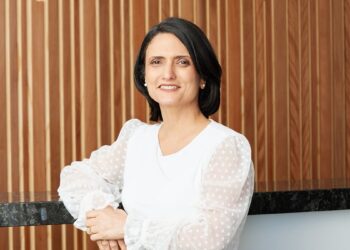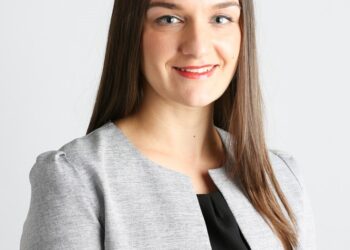As reported earlier this week, new education standards being rolled out by the Financial Adviser Standards and Ethics Authority (FASEA) do not differentiate between accountants operating under a limited versus a full AFSL. This means accountants providing basic SMSF services will, under guidance just released, have to complete the same training as an adviser providing broad advice services.
Director at Ariel & Associates, Jeremy Danon, fears this could prompt accountants with a limited licence to cease their SMSF advice offerings, or be tempted into unlicensed advice.
“If ASIC are blind to this, then they are ignorant of the many accountants just giving “factual advice” and thus satisfying themselves that they are operating properly,” Mr Danon told SMSF Adviser.
Mr Danon is calling on SMSF professionals to lobby their professional accounting body before the laws come into effect in 2024.
“I think it is imperative that accountants start lobbying their professional body and ensure that these organisations act in the best interests of their members – something they failed to do during the limited licensing transitional period,” Mr Danon said.
Chartered Accountants Australia and New Zealand (CA ANZ) is currently pushing FASEA to recognise postgraduate training as prior learning.
“Generally speaking, accountants who have operated in this area have done it for a long time. Those people with 20-plus years experience should be recognised as having different credentials to someone that has just got a degree and RG146,” CA ANZ senior policy adviser, Bronny Speed, told sister publication Accountants Daily.
“Surely those years and those extras equate to something,” she said.
SMSF Adviser understands CPA Australia was also in talks with FASEA for several months — through face-to-face consultation and formal submissions — to have accounting-related bachelor’s degrees recognised as prior learning in a related field.
Earlier this year, there were fears in the accounting community that only planning-related degrees would be recognised by FASEA. The original list of approved tertiary education listed few accounting-related degrees.
katarina.taurian@momentummedia.com.au



Have all these recent ASIC changes, particularly for the experienced and long term client trusted Accountant, improved professional advice or client understanding for SMSF’s? Of course they have not! All that has happened is that more aggressive “cowboys and girls” have entered the ‘lucrative market” with little caring for the clients exact needs. I think the Royal Commissions currently underway are clearly showing that and are just the tip of the iceberg. All that is happening is that many trusted degree qualified and experienced accountants are “retiring” earlier to escape needless red tape that guarantees nothing but chaos and poor advice from inexperienced advisers and opportunistic so called professionals. I see it everyday. Generally Professional Advice provided by experienced Accountants 25 years ago was far better than what is occurring today.
So are they saying they don’t have to follow the law? I’m a Financial Planner and I’m more qualified than most accountants but have to do more study under these changes. Whilst I don’t like it and drank too much the night I realised that more study was needed I have a choice — do the study or become an accountant. I don’t want to be an accountant and would have to complete a bridging course anyway so do the study it is. Also ASIC don’t do anything about accountants providing unlicensed advice in this area anyway, I’ve reported five or six firms without any response.
This is exactly what the banks have planned all along. They have been the law makers behind all this advice nonsense. The government has simply acted on their order.
No. None of this will come out of the “Royal Commission” because they (the banks) have already decided the outcome; hence why they allowed Malcolm Turnbull to call it.
If Mr Danon is providing licensing advice then he needs to understand that there is a clear distinction between factual information and providing advice. There is no such thing as factual advice! One needs licensing the other does not.
For most of these accountants with a limited license they are providing advice without following the advice process anyway so there will be no difference should they cancel their license and continue much like all those firms that didn’t get licensed.
In response to the above comment, I absolutely agree with your sentiment. That is why I stated “factual advice” in inverted commas because the term factual advice is a fallacy. But this is what CPA has previously advised its members and this is what many practitioners are still doing – providing facts to their clients even though this could be construed as financial product advice. It’s important to refer to ASIC RG 36 which states at para 24……”However, in some circumstances, a communication that consists only of factual information may amount to financial product advice. Where factual information is presented in a manner that may reasonably be regarded as suggesting or implying a recommendation to buy, sell or hold a particular financial product or class of financial products, the communication may
constitute financial product advice.”
Specialisation is needed across the board, not just for Accountants – Investment and insurance specialists, for example, will have a long road (of study) ahead if they choose to stay in the industry under the proposed education standards.
The uniform code fails to recognise that industry specialisation will ultimately provide better client outcomes.
Just as not many take a car to a generalist mechanic, or visit a generalist orthopedic surgeon, opting for the specilisation they need solving for, so it could be for the Financial Advice industry.
As always, the mass market, one size fits all, solution is rolled out without a real understanding of how the industry is transforming into areas of specialisation.
Many Financial Planning qualified professionals will also face additional education under the proposed structure as post graduate designations are not recognised.
It would be better if all interested partied lobbied as a voice, rather than the usual, us and them approach.
These changes are hardly surprising. It makes no sense to have 2 sets of rules.